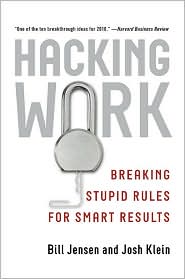It’s been a very long time since I’ve read a fiction book. It’s not that I don’t read; I spend the majority of my evenings poring over non-fiction of some kind or another (business, history and engineering being my favourite subjects). I just never really saw the point of fiction.
That was, until I read Why Every Man Should Read Jane Austen, by one of my favourite bloggers, Brett McKay of The Art of Manliness. The Art of Manliness is one of my favourite blogs on the Internet (and you should definitely subscribe if you enjoy long-form blogging about philosophy and practical skills, regardless of gender). As such, I was intrigued.
Particularly fascinating to me was the discussion of ‘theory of mind’, the ability for us to understand each other and attribute emotions to other people. Honestly, it’s something I’ve never been particularly good at. Other people’s emotions are guesswork to most people most of the time, and to me (and combined with a healthy dose of impostor syndrome in my work) it is mostly cause for panic.
Initially I read the article and then almost dismissed it; I put it at the bottom of a very long to-do list (which will never be complete, my grandchildren will be splitting it up between them when I die). But it kept coming back to me, gnawing at me almost. I don’t read much fiction. I could be better at understanding others. My writing skills have deteriorated.
A week ago I couldn’t bear it any more and downloaded the book on Google Play (substitute Kindle, Project Gutenberg or a physical book store as you like). I thought it might be nice to read a couple of chapters each night to wind down before sleep. Oh how wrong I was. I was hooked.
Three days later, I’d read the entire book (including staying up to 3am two nights in a row), as well as watched the entire BBC mini-series of 6 hours (which I did in one sitting).
This book is incredible.
There’s intrigue, there’s romance, there’s comedy, there’s so much metaphorical bitch-slapping you wouldn’t believe.
Due to the age of the book (it’s written and set in Regency England) the language can be hard to read at times, especially the dialogue. People spoke to each other much differently then, and it took reading passages three or four times before I could sometimes understand them. There were also some passages I didn’t understand the significance of, because I couldn’t read the sarcasm or other inflections properly – it took watching the mini-series to sort that out.
But the difference in language is also one of the strongest points. It gives you an insight into how formal the language was then, and how formally they treated others as a general rule. To not be polite to somebody then was the worst thing that could possibly happen. And the ramifications would be severe: Mrs. Bennett’s loud-mouthedness almost cost her the potential marriages of two of her daughters.
There are other insights too. To do something dishonourable (such as live with a somebody out of wedlock, a big deal for fair reasons back then – there was no contraception) had an impact not only on other’s opinions of you, but also on your family and your friends, and for a very long time. This is something still true today, but it’s far less obvious and the reminder of it’s presence is welcome (even if the presence itself is not).
I also now understand a lot more pop culture references. So many TV shows make references to Pride and Prejudice. I always used to giggle when I saw a reference to some classic that I had read, and now I see them far more often. Even Top Gear made them. Almost for this reason alone I’ve committed to reading more fiction in the future. It makes everything more fun.


 I recently
I recently